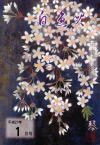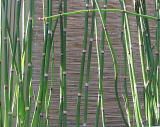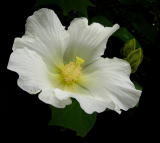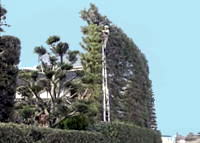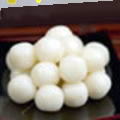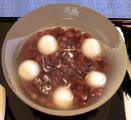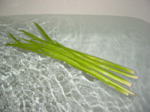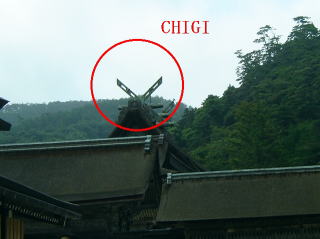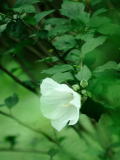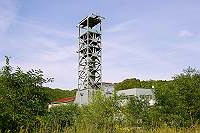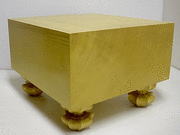| 最終更新日(update) '11.05.02 |
| 2009 |
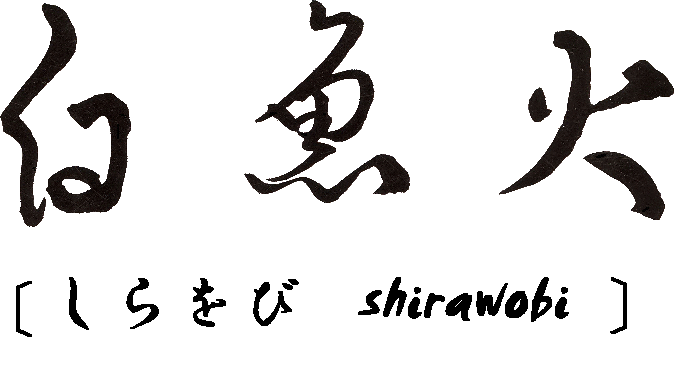 |
|
|
| ここに掲載の句は白魚火誌の“白魚火秀句”に掲載されたものの英訳です。 翻訳はホームページ担当者が行っていますので、作者の意に染まないところや名前の読み違いには直ぐに対応します。メール |
| Shirawobi is the name of a Haiku magazine and an association of Haiku enthusiasts that has existed for fifty years in Shimane Prefecture, Japan. The following Haikus are written by the members of the Shirawobi group, selected by its chairperson Mr. Masafumi Nio, and rendered into English by its web-site editor. The words in the single brackets are Haikus in Japanese and those in double brackets are the authors' names. |
|
|
|
|
| Haikus Selected from '09 January edition of the Shirawobi |
||||
| to '09 January Japanese page | ||||
|
|
||||
| (Kyuuryuu no uzu no hanasa nu momiji kana) ((Ogawa Keiko)) the whirlpool of rapid will never release the red maple leaves (Nani togu to tomonaku tokusa katte hosu) ((Watanabe Harumine)) I was reluctant to cut and dry tokusa*... no specific cutlery to whet
(Kari-jitaku uijin no inu ochitsuka zu) ((Kurosaki Noriko)) the hound looks nervous, on the occasion of his first job (Shiro-fuyou Chiran wo tobi shi otto no ki) ((Shiraiwa Shigeko)) white Suifuyou*-- my husband was a Kamikaze at Chiran
(Fuyu-nage ru ikuri ni namino dabon debo) ((Furuta Kinue)) a winter calm-- the waves of stony shore sound "dabon" "debo" (Kinu de fuku shikki no bon ya ara-bashiri) ((Yanai Eiko)) I wiped a lacquered tray with a piece of silk cloth... new brewed sake (Yabusame no tategami aki wo kake-nukuru) ((Shimizu Takao)) the mane of Yabusame's horse ran through the autumn air |
||||
|
|
| Haikus Selected from '09 February edition of the Shirawobi |
| to '09 February Japanese page |
|
|
| (Fuyu-momiji Kiso-gawa hikari tsutsu nagaru) ((Gotou Yoshiko)) red maple leaves-- the Kiso River is shimmering (Jyuuni-gatsu Hida yori Mino e kumo nagare) ((Hayakawa Toshihisa)) December... a cloud flows from Mino to Hida *Hida is the old name of northern and hilly part of Gifu Prefecture, and Mino is its southern and flat part. (Gairo-jyu ni denshoku tenji shiwasu kuru) ((Yamaguchi Akio)) the Christmas lights are lit on street's lined trees... we are in December (Kare-giku wo taku ki no kemuri ki no kaori) ((Takanashi Hideko)) the withered mums are burnt... the smoke and scent are yellow (Himijika to ii yama-yuki no bus ni noru) ((Tahara Keiko)) said "the days are shorter" and got on the bus for the mountain (Hito-hi hito-hi yosei herashi tsu fuyu ni iru) ((Nakayama Masako)) the rest of my life decreases, day by day... winter comes (Katsubushi to koyomi wo soe te *kinu-kubari) ((Kansha Ikuko)) deliver clothes to parishioners with dried bonito and calendar *Kin-kubari is now an obsolete custum that was taken place on the last day of the year. It was said that the superior gives clothes to its inferior, or peaple give them to their freineds to have them spend happy new year's days. The writer is the wife of Buddhist's priest. (Jyoya no kane ichi-da ichi-da wo kako to seru) ((Yamamoto Namiyo)) each ring of the Joya no kane right away goes into the past (Kotoshi mata onaji tsutuji no kaeri-bana) ((Matsubara Toshie)) the azalea bloomed out of season, this year, too |
|
|
| Haikus Selected from '09 March edition of the Shirawobi |
| to '09 March Japanese page |
|
|
| (Kousha yori koe ga kikoe te Christmas) ((Murakami Shouko)) voices are from a school house... Christmas (Bisshiri to tsurara tarase ru suisha-goya) ((Gotou Masaharu)) the water mill has many and dense icicles (Senshu mina oki wo muki taru ooashita) ((Watanabe Michiko)) all prows direct to the offshore... New Year's Day (Hatsu-warai ha-hi-hu-he-hoho to koe ari nu) ((Takazoe Sumire)) first chuckles on New Year's Day-- the voices included "ha" "hi" "hu" "he" "ho-ho" (Hatsu-kagami kuchi no taisou a-i-u-e-o) ((Masuoka Emiko)) hatsu-kagami*-- I exercise my mouth by saying a-i-u-e-o *Hatsu-kagami means that looking at her/his face in the mirror, on New Year's Day. (Ichi-jin no kaze ni negaeru hou-ochiba) ((Nakamura Kuniji)) a gust of wind made a magnolia fallen leave tossed and turned (Saiban no hito mina omoki tsutsumi sage) ((Ooishi Etsuyo)) New Year's Eve-- all walkers carry heavy packages (Shinkyou ni hatsu-hi* wo kobosu Tarou-sugi) ((Masuyama Masako)) through the Tarou-cidar* the hatsu-hi* lights up a bridge of the shrine *Tarou-sugi: Tarou means the oldest brother and sugi means Japanese cidar. So, Tarou-sugi means the oldest Japanese cida in a forest or in the lined trees. *Hatsu-hi means the sun on New Year's day. (Mikan muku ano-yo kono-yo wo yukikishi te) ((Maekawa Kimiyo)) peeling an orange... I came back again from the entrance of the other world |
|
|
| Haikus Selected from '09 April edition of the Shirawobi |
| to '09 April Japanese page |
|
|
| (Fuyu-ringo mitsu ga heart no katachi shite) ((Abe Fumiko)) the sweetest part of a half winter-apple is heart-shaped (Bokkon no futoki ji kan no ake ni keri) ((Kimura Chikuu)) a bold letter of calligraphy... winter is over (Fuyu-boshi ni inori nokon no yo wo oshimu) ((Masuda Ittou)) look up the winter stars, I regret early death of my friend (Ko no senaka ware ni nite ki shi toshiotoko) ((Yamaguchi Akio)) from the back, my 48 year-old son looks like myself, (Togioe te sabaku kan-buri ita no ue) ((Hino Takako)) having sharpened the knife, I dress a winter yellowtail on a chopping board (Hana takaku miyuru mask no urete ori) ((Mori Jyunko)) the flu mask that makes nose look shapely is now popular (Yami wo tobu musasabi no me no konjiki ni) ((Masuyama Masako)) the flying squirrel with golden eyes was in the dark air (Ro-gamachi ni gobou takuan *Hiyondori) ((Kawakami Masao)) burdocks and picled radishes are on the hearth's wooden frame... sacred Shinto dance *Hiyondori is the local Shinto ceremony in the mountain area of Hamamatsu, which is held during the new year's days at Terano and Kawana where are the village sections of northern part of Hamamatsu. The village people play sacred Shinto musics and dances wearing traditional masks and costumes; like devil, abstract lion and so on, in order to have good harvest in the year. Because of using much fires for the ceremony , some study says that it is derived from Mazdaisum. |
|
|
| Haikus Selected from '09 May edition of the Shirawobi |
| to '09 May Japanese page |
|
|
| (Akago yoku nemuri sakura-yu hiraki keri ((Sueyama Kyouko)) infant sleeps well... the flower of sakura-yu has unfolded *Sakura-yu: Sakura-yu is the tea of salted cherry blossom and it is served on ceremonial and traditional occasions. (Shasou yori mi shi hatsubana ni tochuu-gesha) ((Takaoka Yoshiko)) early cherry blossoms from the train... I stopped over (Boushi-ya no tentou ni haya haru kita ru) ((Katou Masako)) spring has come already, in hat shop (Mame maku ya saniwa no subako ni mo sukoshi) ((Kamo Kouichi)) I also scatter few beans to the birdhouse in my tiny yard *Mamemaki means the bean scattering at the eve of spring in lunar calendar. (Denwa kiru shiodoki sagasu kan-modoriI) ((Taniguchi Yasuko)) I am waiting for the chance to hang up... the cold days went back (Komouchi ni nakaba wa chiri shi kan-botan) ((Motosugi Ikuyo)) in straw-mat cover, winter peony had fallen a half (Muhyou shi te ori yuki-zuri no nawa-shichuu) ((Kouga Fumi)) the mainstay for straw rope of yuki-zuri had hoarfrost (Ume-koboku mikuji ni shikato shibara ruru) ((Takeda Sadao)) old ume tree is bound firmly by omikuji (Ko-shougatsu kodomo-kabuki ni oomukou*) ((Takabe Muneo)) on January fifteen-- an amateur-children's kabuki has Oomukou's shouts *Oomukou: Oomukou is the stand where most of the spectators have expart eye for play such as kabuki. And during the play, they often shout the player's name when he or she performs well. |
|
|
| Haikus Selected from '09 June edition of the Shirawobi |
| to '09 June Japanese page |
|
|
| (Shioiri no hitahita kakusu ashi no tsuno) ((Motosugi Ikuyo)) tide goes into brook... buds of reed are gradually soaked (Asu yuki no yosou kinou no yuki wo kaku) ((Toujyou Mitsuo)) it'll snow tomorrow... I am clearing snow of yesterday (I-hin mina kotoba wo mote ri oboro-zuki) ((Arai Takako)) each relic of my son says something... hazy moon (Sen-mei wo yobiau ryoushi atatakashi) ((Ozawa Fusako)) fishermen call each other by their boat's name... cold winter is over (Hikobae no tsubaki youyou tsubomi motsu) ((Oosawa Noriko)) offshoot of tree's stump, grown into camellia, has buds at last (Kawa no na no koko yori kawaru sakura kana) ((Makizawa Sumie)) the name of river changes here... cherry blossoms (Shinbun wo futatsu ni hiraki haru-gotatsu) ((Kuroda Kazuo)) a widely opened newspaper is on a kotatsu desk... early spring *Japanese newspaper size is 1'9" long and 1'4'' wide.. when opened, it is 2'8" wide. (Koukou ni goukaku-bangou hari-da saru) ((Hirose Mutsuki)) the accepted number* of a high school were posted up *entrance examination number. (Nishin kuru waga jinsei wa Ezo ni oyu) ((Maekawa Kimiyo)) shoals of herrings come... I have been and grown old in Hokkaido |
|
|
| Haikus Selected from '09 July edition of the Shirawobi |
||||
| to '09 July Japanese page | ||||
|
|
||||
| (Haha yori mo shiroki ubitai shunme no ko ((Okuno Tsuyako)) the pedigree pony has a whiter ubitai* than his mother's
(Ikioi no tsuki shi tomato ni hana saki nu) ((Morooka Hitoshi)) tomato I plant is vital and has blown (Start wa sorowa zu jimai kusa-keiba) ((Nagao Kiyo)) the local horse race... breakaway is overlooked (Taiyou no kasa no niji-iro age-hibaii) ((Hagiwara Mineko)) the halo of the sun is iridescent... an ascending lark (Kunpuu wo hoshii-mama ni shi noutegori*) ((Furukawa Shimiko)) the noutegori* trimmer seems to enjoy balmy breezes
(Seiryuu ni togi-sumasa re shi kajika*-bue) ((Narita Yukiko)) clear streems has shardened the songs of kajika frog *kajika, which croak is very good, is tiny frog, that lives in clear stream in Japan. (Haha no ho wo furikaeri tsutsu aoki fumu) ((Hujisawa Toshiko)) mom and I walked in a spring-grassy field worrying her unsteady steps |
||||
|
|
| Haikus Selected from '09 August edition of the Shirawobi |
|||
| to '09 August Japanese page | |||
|
|
|||
| (Shiratama ni itsumo no chisaki gin no saji) ((Watanabe Michiko)) everytime shiratama is served with tiny silver spoon * Shiratama is dumpling made of rice powder. It is usually an ingredient of azuki-bean soup for dessert.
(Utsukushiki ken wo ukabe te *shoubu no yu) ((Yumiba Tadayoshi)) sweet-flag bath-- the leaves look like fine swords * Shoubu-yu or "Shoubu no yu" is a tradition on May 5. People add green shoubu: sweet- flag, leaves afloat in the bath . They believe that they will be healthy and happy for a year, by doing so.
(Suikazura no watashi no fune no na Chigiri-maru) ((Aoki Ikuyo)) Japanese honeysuckle-- the small ferry's name is *Chigiri-maru * Chigiri means "marriage noose" and maru is the suffix of ship's name, in Japan. (Tsuyu-bare wo tatsu kaikou no ichiban-ki) ((Ookawara Yoshiko)) first flight of *the new airport took off... a fine day in the rainy season *Shzuoka-Mt. Fuji airprt. (Busou shi te kemushi-taiji no nikka kana) ((Tani Mifuji)) with anti-bug-clothes I exterminate caterpillars as a daily routine (Itteki ni hikari michi ki te shitatare ri) ((Nogami Akira)) the dop of spring's water swelled, shone and fell down (Hi ni nando ueta no kigen mi te mawaru) ((Sano Eiko)) I ask after the young rice I planted, a few times a day (Kuchibashi wo kawasu ko-suzume oya-suzume) ((Ishikawa Toshiki)) parent sparrow and the chick kiss with their beaks (Go-gatsu yuku man-nen-hitsu no futoki sen) ((Shinya Kinuyo)) May has gone... the line by the fountainpen is bold |
|||
|
|
| Haikus Selected from '09 September edition of the Shirawobi |
||
| to '09 September Japanese page | ||
|
|
||
| (Chigi yori mo takaki taisan-boku no hana) ((Shibayama Yousaku)) flowers of evergreen magnolia are higher than chigi
(Togiya yori modoru houchou natsu-matsuri) ((Murakami Shouko)) sharpened kitchen knives are back from sharpener... summer shrine festival (Amari nae tou-kannkaku ni oite ari) ((Hieda Shuumi)) the rice sprouts left over are at even intervals. (Salvia wa mottomo tsuma no sukina hana) ((Nakada Hideko)) Salvia was the most favorite flower of my late husband (Kantoui no shounen shoujyo ta wo uuru) ((Midorikawa Eiko)) wearing Kantoui*, boys and girls plant rice *Kantoui is the clothes that was worn by ancients. That is a piece of cloth which has a hole for neck in its center. (Tokoroten jinan wa kotoba-kazu sukuna) ((Oomura Yasuko)) gelidium jelly-- my second son is reticent (Hiyake shite koe mo onoko ni nite kitaru) ((Okada Boen)) sunburned girl... her voice became boyish (Ao-shigure kokinwaka-shuu kiku kouza) ((Wakiyama Sekishou)) ao-shigure* -- the lecture of the kokinwaka-shuu * Ao-shigure: ao means green, and shigure means a shower in late autumn. However, ao-shigure means drops from green leaves of tree in summer. ( Kawasemi no tobe ba ruriiro me ni nokoru) ((Araki Shigeru)) common Indian kingfisher whose eyes are azure blue dived into water |
||
|
|
| Haikus Selected from '09 October edition of the Shirawobi |
| to '09 October Japanese page |
|
|
| (Nana-jyuu wo ko-ra ni iwawaru hamo no kawa) ((Debuchi Satsue)) the celebration of my seventy years... the dish of sea-eel's skin* * The skin of sea eel is often an ingredient for the food in sweetened vinegar. (Hiru-nezame go-tai no umu wo tashikamu ru) ((Gotou Masaharu)) I checked if my whole body was to be... after a nap (Nouzen no saki tsutsu chirau higure kana) ((Teramoto Yoshinori)) the flowers of trumpet creeper are blooming and falling at dusk (San-nin no hebi no nagasa ni chigai ari) ((Hanaki Kenji)) the lengths of a rat snake of the three witnesses differ (Mizu no aru tokoro doko nimo mizu-sumashi) ((Hashimoto Yoshie)) whirligig beetles are, wherever puddle is (Hanabi hate hoshi-boshi sora ni modori keri) ((Hazama Toshiko)) fireworks are over... the stars return to the sky (Dono machi mo maturi no jyunbi Heijin-ki) ((Higaki Henri)) every comunity is preparing its shrine festival... Heijin-ki* *Heijin-ki is the aniversery of Mr. Yuasa Heijin's death who was a haiku-poet of Shirawobi. (Gadou-ki ya tousumi hane wo tatami ori) ((Fukushima Fusako)) a damselfly folded its wings... Gadou-ki* *Gadou-ki is the aniversery of Mr. Fueki Gadou's death who was a haiku-poet of Shirawobi. (Semi no naku Akiba-kaidou Kamba-zawa) ((Suganuma Kouzou)) cicadas are singing... the mountain stream of Kamba (Doro tsuke nu okina kamiza no doro-otoshi) ((Tsushima Shouen)) an old and retired villager is the guest of honor... rice-planting-completion's party |
|
|
| Haikus Selected from '09 November edition of the Shirawobi |
||
| to '09 November Japanese page | ||
|
|
||
| (Mada ani no iru furusato no bon no tsuki) ((Ogawa Keiko)) still my old brother is in my hometown... the full moon of Bon* (Kago ni moru susuki hiizuru cha no yu kana) ((Kuya Kiyo)) susuki* arranged in a basket is prominent... cha no yu ceremony *susuki: Japanese pampas grass. (Aki suzushi jyoujyu mukae shi sou no tsuma)) ((Matsuura Fuzuki)) the wife of Buddhist priest turned hundred... hot summer has gone (Ine no ho no harami te kijitsu kitari keri) ((Suzuki Yuriko)) ears of rice are about to come out... anniversary of his death (Shiro-mukuge jyuusannkai-ki shuushi keri) ((Takeuchi Yoshiko)) white rose-of-Sharon-- I celebrated thirteenth anniversary* of my husband's death *Second, seventh, thirteenth and thirty-sixth anniversary of death are especially important for Japanese Buddhist, and the family celebrate each of them.
(Kono yuube " tsukuzuku oshi " to semi no naku) ((Kawashima Misono)) in this evening , a cicada sings like "tsukuzuku-oshi"* *Tsukuzuku-oshi means "thoroughly regrettable". (Ichimai wa maki age te ari aki-sudare) ((Iwanari Masako)) one of the reed screens was wound up, fall has come (Myoukou no hana-no no hate no no-buro kana) ((Yoshizawa Ouushi)) the end of wild-flower-field of Mt. Myoko-- open-air bath ( Urabon ya butsu-ma ni yome no tama imasu) ((Tsuchie Hiroko)) the soul of daughter-in-law must be in our Butsu-ma* in urabon* *Butsu-ma is the room where the family Buddhist altar is placed. *Urabon or urabon-e is the formal word of bon*, occurring from the 13th to 16th of July or August to hold a memorial service to the spirits of ancestors, family gathering and visit to grave. ( Mijika-yo no nemure nu ichi-ya nagaki kana) ((Maekawa Kimiyo)) a short summer night-- I could not sleep so it was long |
||
|
|
| Haikus Selected from '09 December edition of the Shirawobi |
||||
| to '09 December Japanese page | ||||
|
|
||||
| (Bohyou naru tate-kou-yagura hana-susuki) ((Hirama Junichi)) an abandoned tower of mine shaft is its tombstone... Japanese pampas grass
(Se no takaki cook no boushi kotori kuru) ((Satou Shouko)) the hat of tall cook... small birds migrated to here (Kaya nana sun izumai tadasu shuu-tou-ka) ((Takemoto Chuusai)) I sit straight up, facing high-quality goban*... under autumn lamplight *Goban is a square wooden board to play Igo or Go which is a game played by two persons, like chess. And high-quality goban is made of old Japanese nutmeg tree of 8 inches thick. And Shogi game also uses similar board.
(Shuuten no kumo ni jyuutai naka ri keri) ((Watanabe Harumine)) clear October sky-- there is no traffic jam of the clouds (Nani mo naki tsukue no ue no shuui kana) ((Kawashima Akiko)) nothing is on my desk... then I sense autumn feeling (Sawayaka ni ware kentai wo yakushi keri) ((Ooyama Seishou)) refreshingly I registered to leave my body to medicine (Kure hayashi gyoushou-nin no sute-ne kana) ((Yamoto Akira)) short daytime-- hawker is forced to discount much (Mizu no michi ookiku hiraki yana-jimai) ((Inanobe Hiroshi)) the fish weir was ended up... the stream returned |
||||
|
|
